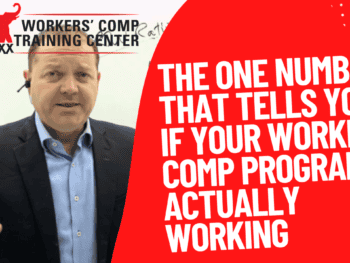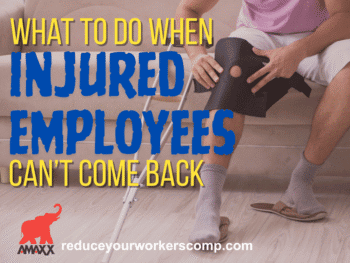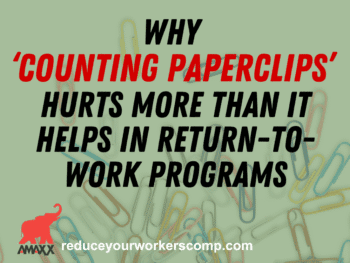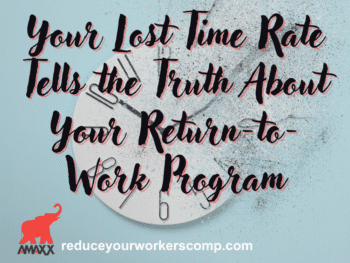Trinity International Corp. (name changed), a holding corporation for 60 other and various companies, recently reduced incurred workers’ compensation losses by 60%; medical costs by approximately 50% and 99% of injured employees returned to work within 10 days. Trinity teaches its divisions to manage claims internally, returning employees to work as soon as medically able.
Trinity takes charge of each injury so the injured employee goes through an orderly procedure from the time of the injury until the time the employee returns to work. Trinity’s old policy of “no light-duty” jobs was replaced with an active effort to provide modified-duty jobs for injured workers on a temporary basis until they can return to their original jobs at 100% capacity.
Here’s What Trinity Did
1. Introduced its Injury Management Program with a series of day-long seminars.
2. Introduced an Injury Management Program Manual — the “tool kit” for the program — consisting of explanatory material, form letters, sample procedures and policies.
3. Hired qualified employees.
4. Used active claims’ management.
5. Used a quick, post-injury response system.
Screening Qualified Employees
The purpose of pre-employment screening is to sense if applicants are physically and mentally able to perform the functions of the job they apply for, and to ensure each employee is suitable for employment at the company. Trinity ensures a good job match by using these techniques.
1. Pre-employment medical evaluations by off- site or local doctors.
2. Use of detailed employment application forms.
3. Background checks.
4. Credential verifications.
5. Motor vehicle record checks.
6. Drug screening (at the discretion of the company and following state law).
7. Check for prior workers’ compensation claims.
Active Management
Managing all claims actively is a key management responsibility in a company. Managing these claims means making a commitment to take control of the situation and deciding who is in charge of work-related injuries and absences — you or the employee.
In the past, Trinity found in many of its divisions, the employee was actually controlling the situation by, for example, stopping by the plant with a note from the treating doctor stating the employee would be “out of work” for several months. In most instances, no procedures were in place to verify if an injury actually existed, was the injury work related or the diagnosis valid.
Internal management of claims includes designing and implementing in-house policies, procedures and facility-based documents to be followed and used by each employee every time an injury occurs. The program must be communicated to employees, supervisors, the insurance company or the third-party administrator.
Post-Injury Response
A quick, post injury response system must in place. This is one of the most important aspects of Trinity’s program. Initially, it is the most time consuming because it is a requirement each and every injury be followed up with immediate action.
The program requires the following steps.
1. Immediate reporting of the accident.
2. Transporting the employee to the company doctor.
3. Discussing the employee’s medical condition with the doctor.
4. Providing specific forms to the doctor.
5. Requiring specific information and medical restrictions from the doctor.
6. Returning the employee to the facility to perform a modified-duty job matching the medical restrictions given by the doctor.
Once an injury is reported, Trinity takes all appropriate steps to verify the injury was work related, including investigating the circumstances of the accident and the extent of the injury. Trinity employees know all work-related injuries are taken quite seriously and a full investigation will ensue. In the rare instance when fraud or overpayment is uncovered the company seeks reimbursement and, if possible, prosecutes the overpaid recipient if it appears there was an intent to defraud. (workersxzcompxzkit)
For employees who are currently out of work and being treated by their doctors, Trinity asks them to request medical information directly from their doctors, then a corporate medical consultant contacts the employee’s doctor to discuss the condition and obtain enough information to offer the employee a modified-duty job.
More about Trinity in future editions. Sign up for to recevie our blogs via email.
Author Robert Elliott, executive vice president, Amaxx Risks Solutions, Inc. has worked successfully for 20 years with many industries to reduce Workers’ Compensation costs, including airlines, health care, manufacturing, printing/publishing, pharmaceuticals, retail, hospitality and manufacturing.
Do not use this information without independent verification. All state laws vary. You should consult with your insurance broker or agent about workers’ comp issues.
ESSENTIAL: This article is Return-to-Work Essentials content.



























